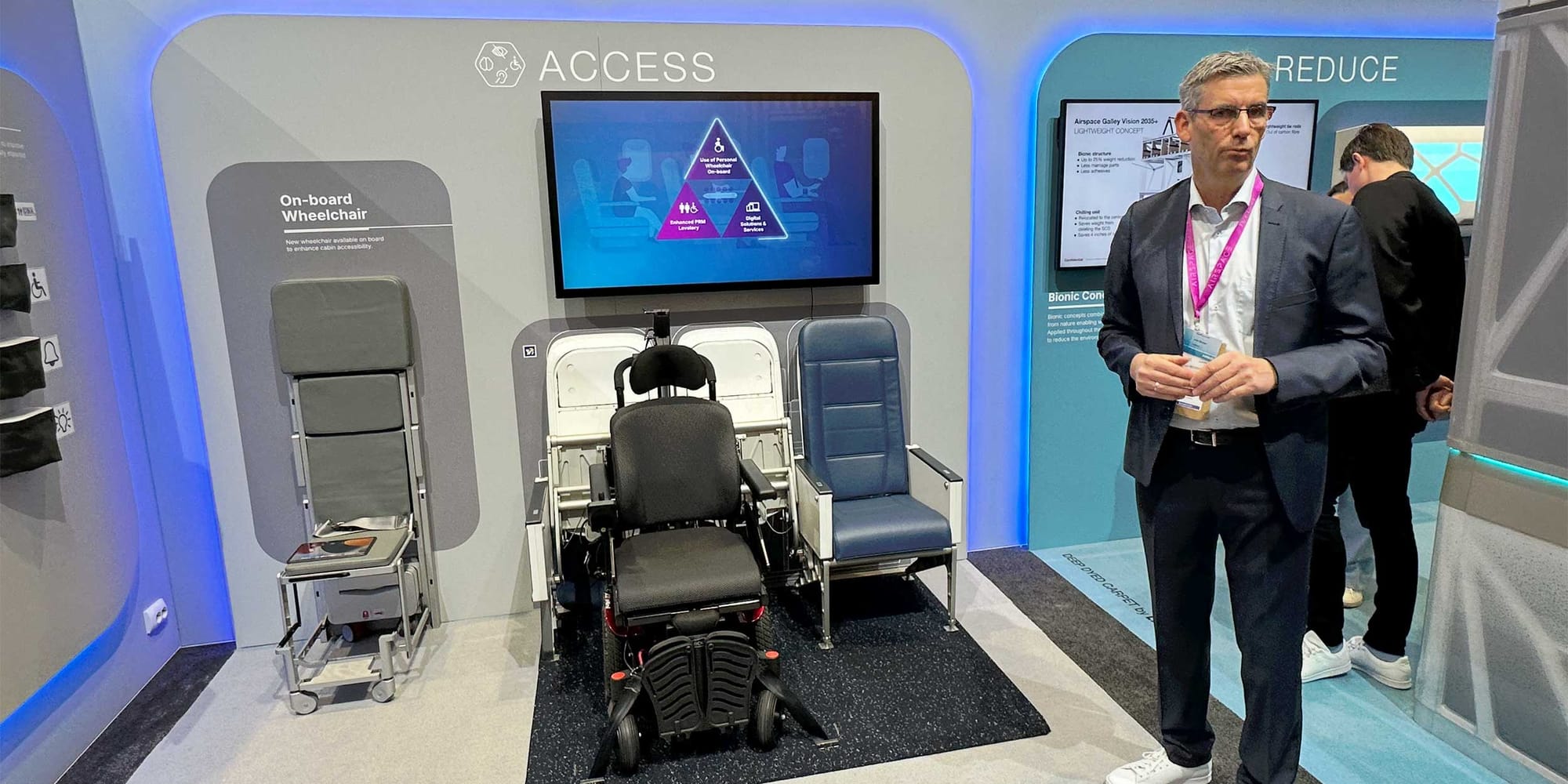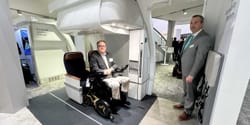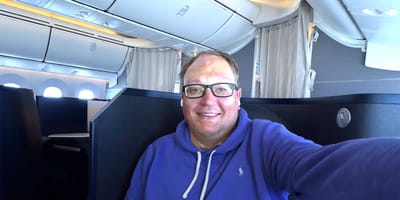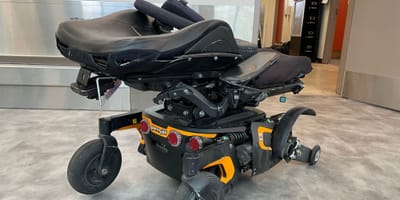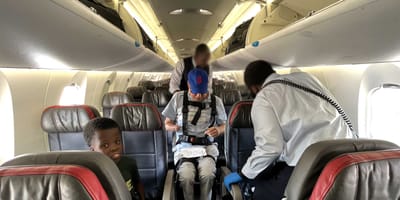Airplane manufacturer Airbus maintains one of the largest stands at the Aircraft Interiors Expo (AIX), exhibiting its own cabin interior concepts and promoting innovations from external suppliers.
The airframe manufacturer kicked-off AIX with a media briefing that explored a new "Airspace" interior for the Airbus A220 (to be launched with Air Canada), a new first class cabin concept for the Airbus A350-1000 and the company's commitments on increased sustainability and accessibility.
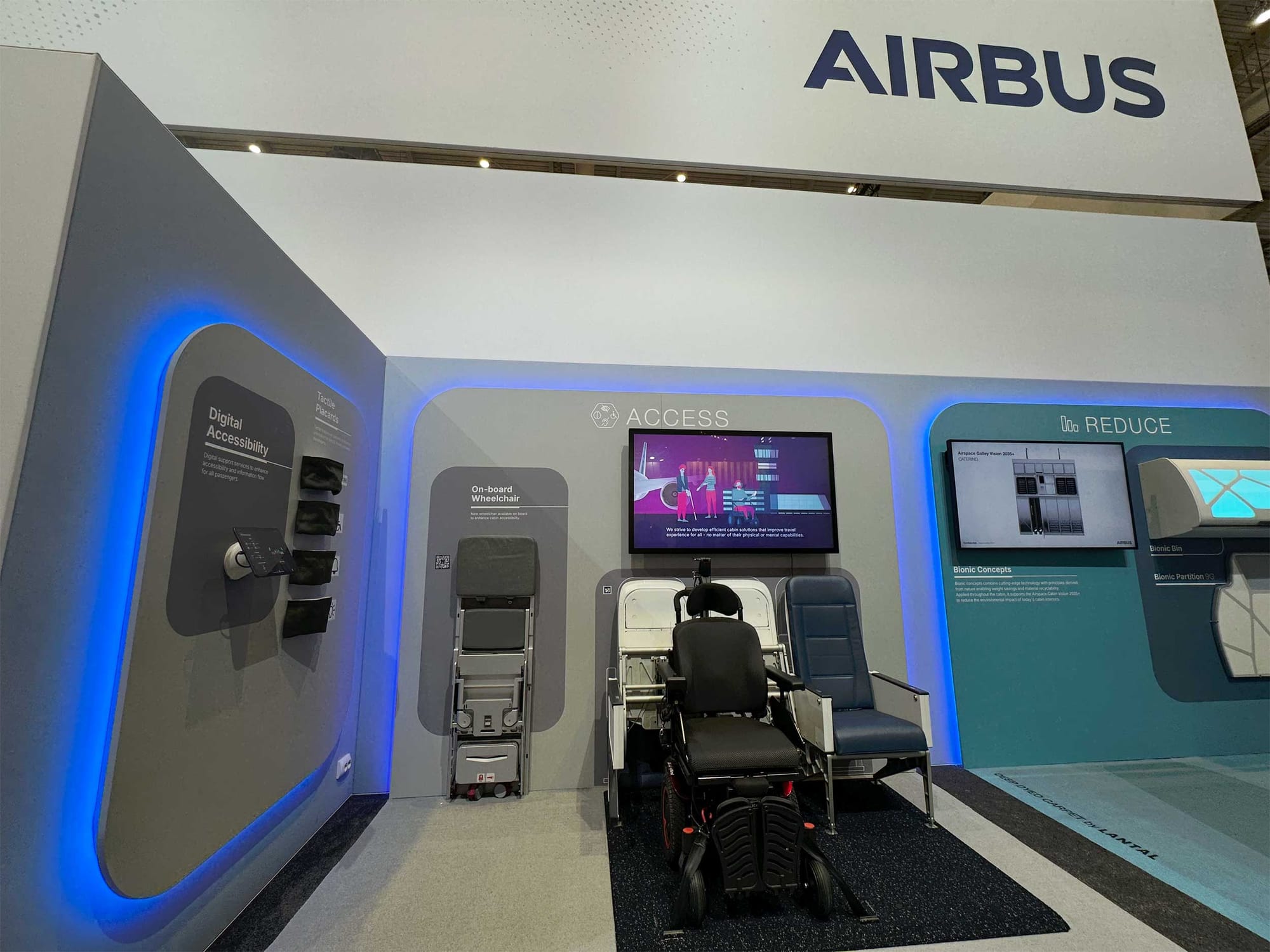
In its accessibility exhibit, Airbus highlighted a familiar product — the Air4All wheelchair securement space for the economy class cabin developed by Delta Flight Products (DFP). The co-marketing initiative was a first — never before has an aircraft manufacturer marketed a wheelchair securement space, much less exhibited it at AIX. Seeing Air4All in prime position at the front of the Airbus stand sent a strong message that personal wheelchairs in the aircraft cabin are the future.
When asked why the Air4All product had been selected for display on the Airbus stand, an Airbus manager told me that it is regarded as the "most discussed" and "most promising" solution for wheelchairs in the aircraft cabin. Air4All was the first product of its kind, and it is the solution that is farthest along in the journey to certification, with an open application for a Technical Standard Orders (TSO) Authorization from the Federal Aviation Administration (FAA).
Paid subscribers make it possible for this website to exist — they allow me to report on the accessible travel stories that matter, and to share insights from my own travels. Please consider signing-up as a member to support this important work.
Air4All's placement on the Airbus stand should not be misconstrued as an endorsement of a particular product, the company said, noting that cabin interior products from a wide range of manufacturers are routinely featured. As such, it would not be surprising to see the Collins Aerospace Prime+ Accessibility Platform featured by Airbus at a future expo.
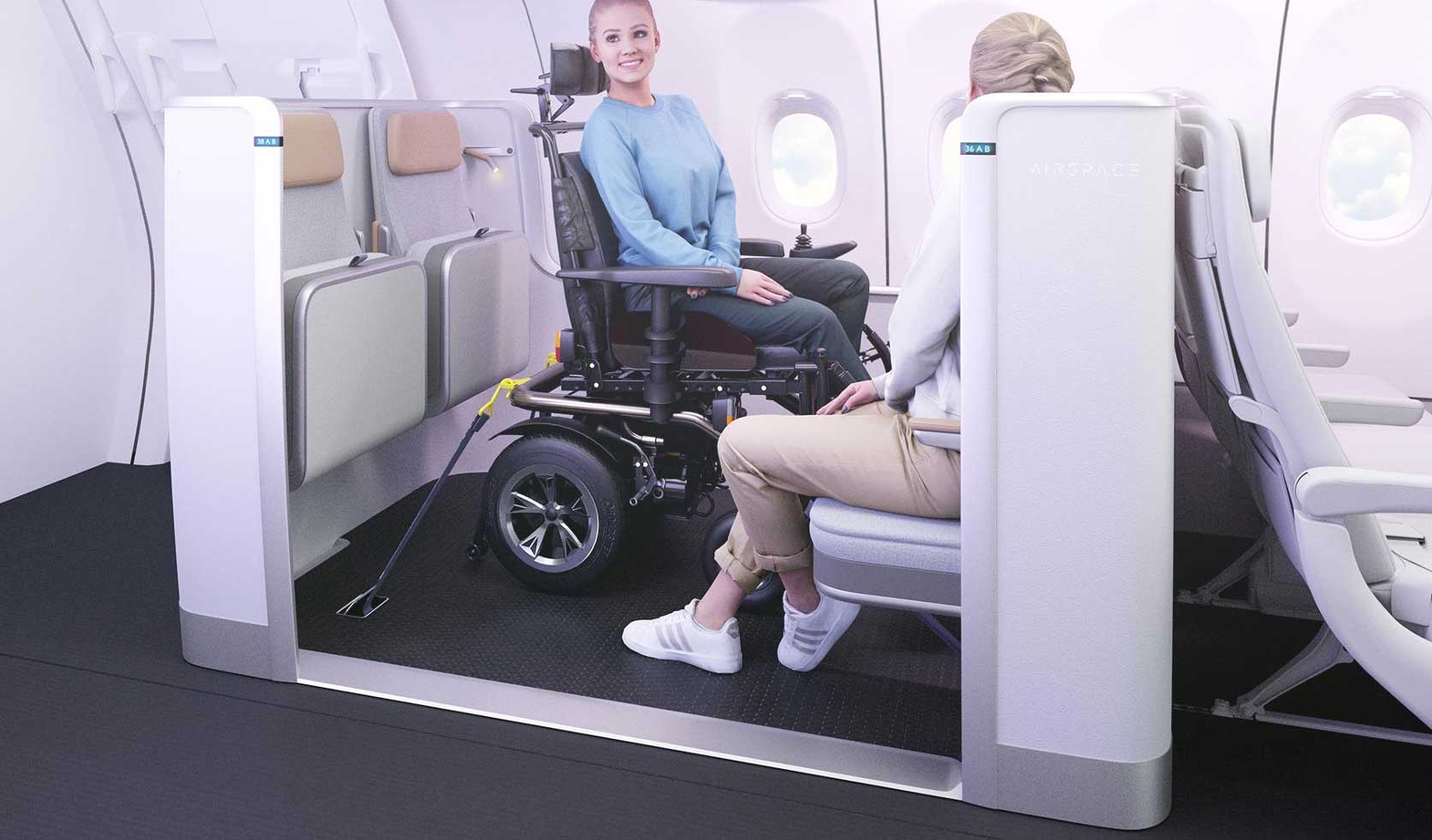
Airbus is also developing a wheelchair securement prototype of its own, renderings of which it showcased last year. Development on that project has continued, and I was told at AIX that an engineering prototype would be showcased to airlines this month.
A wheelchair securement solutions that will permit the use of a personal wheelchair onboard is one component of an accessibility triad that Airbus refers to as the "Magic Triangle." The triangle also includes an enhanced accessible lavatory and digital solutions and services that are accessible to and support disabled travelers. Prototypes for "accessible" lavatories have not yet gone far enough and, without additional government regulation, airplanes will continue to lag far behind the accessibility of passenger trains. Exciting digital innovations are also on the horizon, particularly those which improve accessibility for blind and low vision travelers.
With the Air4All economy class prototype displayed on the Airbus stand at AIX, Delta Flight Products exhibited an engineering prototype of the same seating solution on its stand. The minimalist version showcased to customers the seat's construction, operation and placement of accessibility features.
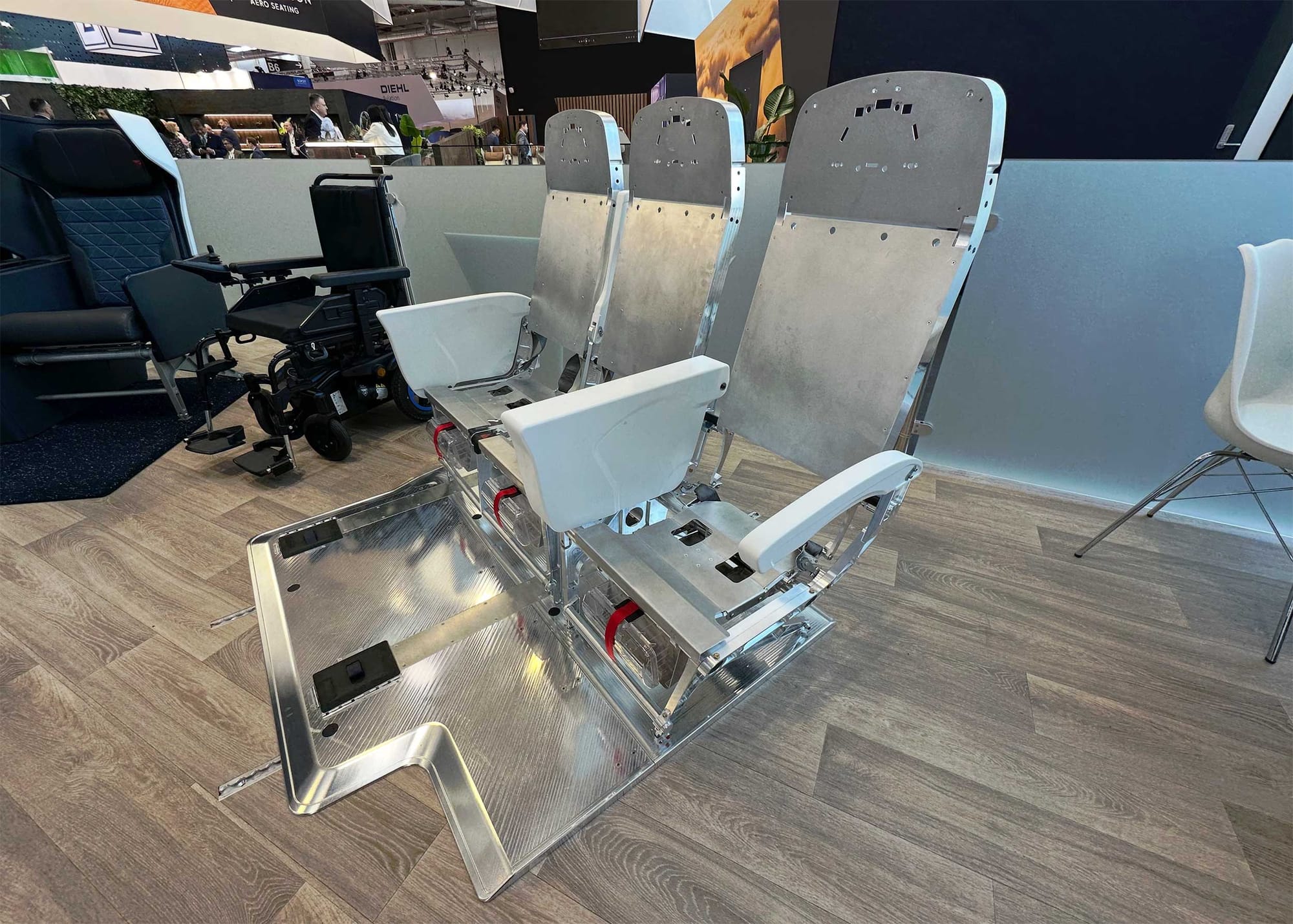
It was interesting to see the raw seating product, and I appreciated the opportunity to reconnect with the DFP team at AIX to discuss their continued work.
The economy class seating product was initially designed to be installed on Delta's Boeing 757 aircraft, and was constructed to meet the FAA's older 9g force standard for crash test ratings. Now, with questions about whether the Boeing 757 will be the launch aircraft (it is an older aircraft type likely to be retired soon), DFP is debating whether to move forward with the 9g seat or advance to the 16g standard mandated by the FAA since 2005. The 16g standard has already been incorporated in the Air4All prototype for the first class and premium economy cabins. Elevating the Air4All economy class product to the 16g standard would ensure it is fit for sale to global airlines. 16g seats are backwards compatible with older aircraft, so a 16g seat could still be installed on a Boeing 757 even though it exceeds the lower 9g standard.
However the DFP team decides to move forward, they do so with the support of leadership and a commitment to bring the Air4All product to market. One executive told me, "we are committed to installing this on an airplane as soon as possible, even if that airplane is not owned by Delta Air Lines." That's an encouraging sign, and one the disability community should be excited by. Let's hope they find a customer soon.

